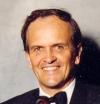Eric Wolanski

LOICZ SSC Member
Australian Institute of Marine Science
Phone: 61-7-47534444
Fax: 61-7-47725852.
Dr. Eric Wolanski is a coastal oceanographer with 35 years experience. He now divides his time between Australian Institute of Marine Science, the ACTFR at James Cook University in Australia, and on-going collaborative research with the Universities of Florida and Hawaii on land-use impacts on lakes, mangroves, and coral reefs, with the Catholic University of Louvain on coral reef oceanography modelling, and with Tanzania National Parks with water resources management impact on wildlife.
His research interests range from the oceanography of coral reefs, mangroves, and muddy estuaries, to the interaction between physical and biological processes determining ecosystem health. He has more than 300 publications including 2 papers in Science, 1 in Nature, and 6 books (Physical Oceanographic Processes of the Great Barrier Reef, CRC Press; Oceanographic Processes on Coral Reef, CRC Press; Mangroven - Lebensraume zwischen Land und Meer, Filander Press; The environment in Asia Pacific harbours. Springer; The role of physical processes in mangrove environments. Terrapub; Estuarine Ecohydrology. Elsevier).
Eric is a fellow of the Australian Academy of Technological Sciences and Engineering, the Institution of Engineers Australia, and l’Acad ém ie Royale des Sciences d’Outre-Mer. He was awarded an Australian Centenary medal, a Doctorate Honoris Causa, and a Queensland IT&T award for excellence. He is listed in Australia’s Who’s Who and he is an Erasmus Mundus scholar.
Eric is the chief editor of ECSS and WEM. He is a member of the editorial board of JCR, JMS, CSR and E&H. He is a member of the Scientific and Policy Committee of EMECS, he chairs the UNESCO-ROSTE estuarine ecohydrology task force for Europe, and he is a member of UNESCO-IHP estuarine ecohydrology task force and the NCEAS-based Ecosystem-Based Coastal Management Group (EBCM).
Eric would like to open a dialogue between LOICZ, EMECS, UNESCO-IHP, UNESCO-ROSTE, and EBCM to find common synergies amongst these organizations that are all striving for similar (but not identical) goals.





